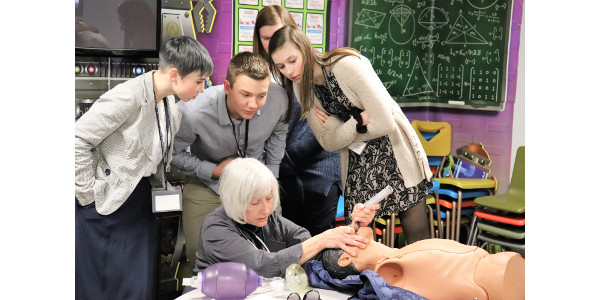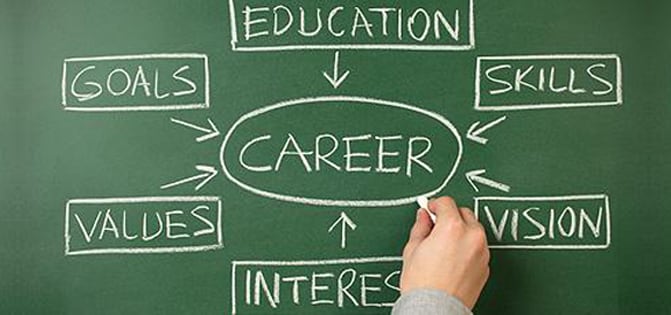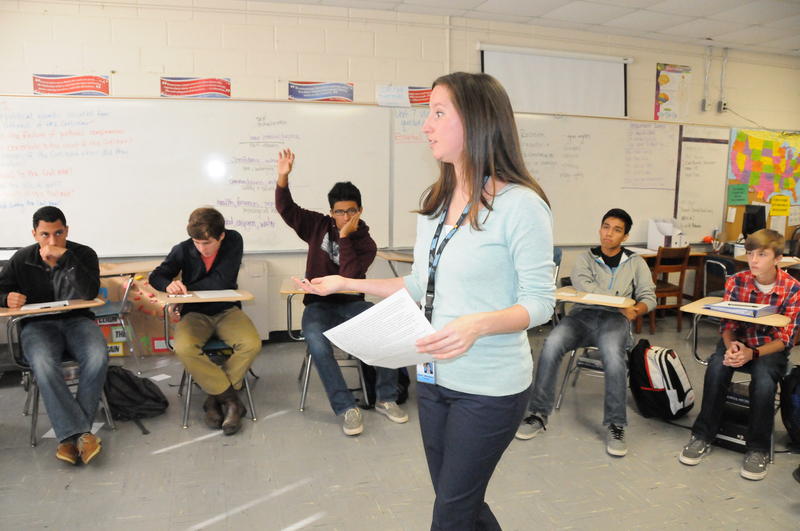The Bridge Between Grade School and School – Junior High School Career Education

Junior High School is really a bridge and threshold between Grade School and School, a time period of transition.
Requirement for Junior High School Career Education
Junior high school career education lays the research for future career development by helping students attain the following goals:
Understanding of private characteristics, interests, aptitudes, and skills
Understanding of and respect for that diversity around the globe of labor
Knowledge of the connection between school performance and future choices
Growth and development of an optimistic attitude toward work (Developmental Career Programs 1998)
Without Junior High School Career Education, students neglect to develop a foundation and also the link between senior high school academic subjects, potential careers, realm of work, and publish-secondary training. Consequently, students have poor self concepts, possess poor intrinsic motivation, lack self awareness, making limited opportunities.
Eventually, a few of the students who neglect to take part in a job education program give up of faculty.
Advantages of Junior High School Career Education
Junior High School Students who complete career teaching programs possess the following positive outcomes –
Enhanced understanding around the globe of labor resulting in an openness for an elevated number potential careers
Improved skills to create informed decisions and sophisticated career information problem-solving
Enhanced academic, personal, and working together skill development
Elevated career awareness, self-esteem, clearly defined goals, a feeling of direction, and motivation to persist and achieve a publish secondary training and education
National Career Development Guidelines – Career Education Model
Teachers and counselors make use of the National Career Development Guidelines (NCDG) to produce junior high school career education sources, career self assessment tests and tools. Career understanding, skills, and decision-making processes make use of the NCDG Guidelines.
The NCDG Guidelines have three domains, goals, and indicators of mastery under each career development goal.
The 3 domains are:
Personal Social Development (PS)
Educational Achievement and Lifelong Learning (Erectile dysfunction)
Career Management (CM)
The training competency stages are:
Understanding Acquisition (K). Junior high school students in the understanding acquisition stage expand understanding awareness and make comprehension. They recall, recognize, describe, identify, clarify, discuss, explain, summarize, query, investigate and compile new details about the understanding.
Application (A). Junior high school students in the application stage apply acquired understanding to situations and also to self. They look for how to operate the understanding. For instance, they demonstrate, employ, perform, illustrate and solve problems associated with the understanding.
Reflection (R). Junior high school students in the reflection stage evaluate, synthesize, judge, assess and evaluate understanding in accord using their own goals, values and beliefs. They decide if you should integrate the acquired understanding to their ongoing reaction to situations and adjust their behavior accordingly.
A good example of the private Social Development domain are:
PS1.K2 Identified your abilities, strengths, skills, and skills.
PS1.A2 Shown utilization of your abilities, strengths, skills, and skills.
PS1.R2 Assessed the outcome of the abilities, strengths, skills, and skills in your career development.
Important elements of Junior High School Education Program
Based on the nation’s Career Development Guidelines, the important thing aspects of a junior high school career education program increase students’ awareness that belongs to them interests and make them learn about a multitude of jobs. The important thing aspects of Junior High School Education Program include –
Career exploration sources – Tests, internet sites, books, and software
Interest inventories
Career portfolios
Field journeys
Curriculum
Career days
Community partnerships
Career Tests
Junior high school career tests showcase the connection between job interests, key characteristics, college majors, hobbies, abilities, and related careers. Based on research, junior high school students use career tests to recognize the 3 high career activity interests, and also the three low regions of interest. Staying away from a low interest rate areas is much more important since a low interest rate areas minimize personal motivation.
Career Portfolio
Like a second key factor, career portfolios record your way from soccer practice to publish secondary training and/ or the field of work. Career portfolios are an accumulation of –
Vision, goals, and dreams
Important resource people and contacts
Major career exploration objectives and goals
Learning activities, skill practice, fieldwork, interviews, possibilities and experience
Personal, academic, and social strengths
Look at skill and private development performance within the major regions of career development
Junior senior high school courses loved most or least and also the success such courses
Extra curricular activities, e.g Sports, athletics, arts, computers, music, dancing, literature, writing, and speaking, and acting and success such activities
Three low or high career interest activities and general aptitude areas
Three high potential job possibilities
Community Partnerships
Additionally to career tests and portfolios, community sources offered important elements. Types of community sources and partnerships are –
Field journeys to schools, universities, community companies and agencies
Community resource loudspeakers
Career Services advisors, coaches, or counselors
Career awareness fairs
Special collaborative programs (Cruz 2000)
Community sources and partnerships provide possibilities for college students look around the realm of work. Community occasions expand the students’ knowledge of job responsibilities, workplace skills, and also the relevancy of faculty subjects. Junior high school career education program provide students with awesome possibilities to achieve self awareness in addition to explore and understand the field of work. Career exploration sources, career portfolios, community partnerships and career days create invaluable encounters.








